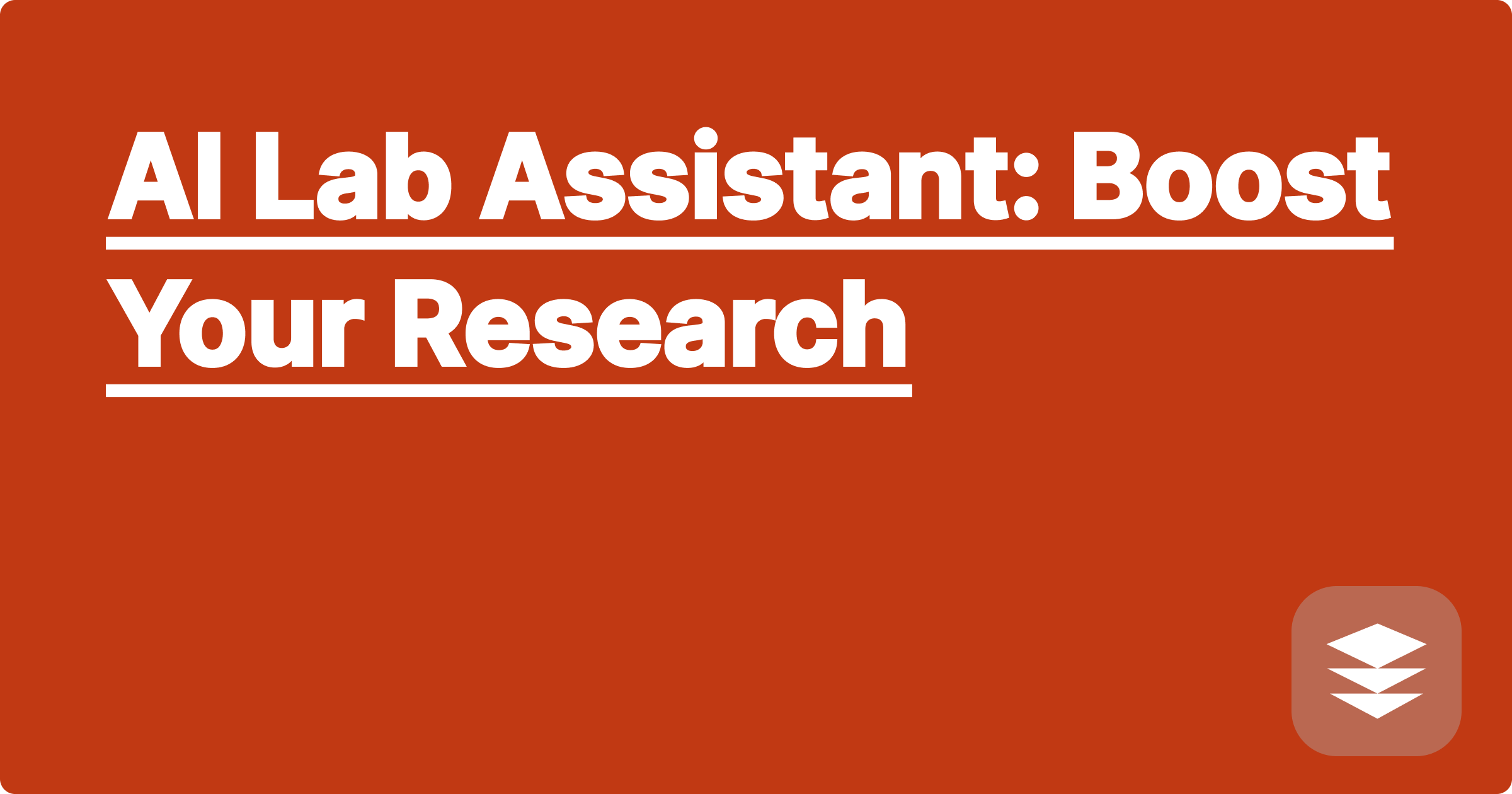
The demanding world of STEM education and research often leaves students and researchers feeling overwhelmed. Juggling complex coursework, demanding research projects, and tight deadlines can be a constant struggle. However, a new wave of AI-powered tools is emerging, offering a powerful solution to these challenges, acting as a virtual lab assistant to boost productivity and unlock new levels of academic achievement. These tools can streamline workflows, automate tedious tasks, and provide personalized learning experiences, ultimately empowering STEM students and researchers to excel in their fields.
This shift towards AI-powered assistance is not just a trend, it's a fundamental change in how STEM work is conducted. For students, it means more time for deep learning and understanding core concepts instead of getting bogged down in repetitive tasks. For researchers, it translates to accelerated research cycles, more efficient data analysis, and the ability to tackle more ambitious projects. Embracing these tools is no longer a luxury, but a necessity for staying competitive and pushing the boundaries of scientific discovery.
STEM fields are inherently challenging, requiring a deep understanding of complex concepts, rigorous analytical skills, and the ability to apply theoretical knowledge to practical problems. Students often face immense pressure to maintain high GPAs while simultaneously engaging in research and extracurricular activities. Researchers, on the other hand, grapple with the ever-increasing volume of scientific literature, the complexity of data analysis, and the pressure to publish groundbreaking research. Traditional methods of learning and research are often inefficient and time-consuming, leaving STEM professionals struggling to keep up with the demands of their fields. Data analysis, for instance, can involve hours of manual work, prone to human error. Literature reviews can be daunting, requiring sifting through countless papers to find relevant information. These challenges often lead to burnout, hindering productivity and impacting overall academic and research outcomes.
Artificial intelligence offers a transformative solution to these challenges. AI-powered tools can automate tedious tasks, provide personalized learning experiences, and accelerate research workflows. Imagine having a virtual lab assistant that can analyze your experimental data, summarize research papers, and even help you design experiments. Platforms like GPAI (a hypothetical, advanced AI learning platform), ChatGPT, Claude, and Wolfram Alpha offer a range of functionalities that can significantly boost productivity and enhance learning outcomes. GPAI, for example, can generate personalized study plans based on individual learning styles and weaknesses, track progress, and provide targeted feedback. ChatGPT and Claude can be used for brainstorming research ideas, generating code snippets, and even writing drafts of research papers. Wolfram Alpha can perform complex calculations, visualize data, and provide step-by-step solutions to mathematical problems.
Integrating AI tools into your workflow doesn't have to be complicated. Start by identifying your biggest pain points. Are you struggling with time management? Is data analysis taking up too much of your time? Once you've identified your needs, explore the available AI tools and choose the ones that best address those challenges. For example, if you're struggling with time management, GPAI's scheduling and task management features, integrated with techniques like the Pomodoro method, can help you create a structured study plan and optimize your time. If you're overwhelmed by the volume of research literature, use a tool like Elicit to quickly find and summarize relevant papers. Begin by experimenting with different tools and gradually integrate them into your daily routine. Don't be afraid to ask for help and seek out online tutorials and resources.
Consider a physics student struggling with understanding complex concepts like electromagnetism. They could use a simulation tool powered by AI to visualize electromagnetic fields and experiment with different parameters. A chemistry student could leverage AI-powered molecular modeling software to predict the properties of novel compounds and design new drug molecules. A biology student could use AI to analyze large datasets of genomic information and identify potential disease biomarkers. In research, AI can be used to automate data cleaning and preprocessing, identify patterns in complex datasets, and even generate hypotheses. For example, an engineer could use AI to optimize the design of a wind turbine, while a mathematician could leverage AI to prove complex theorems.
To maximize the benefits of AI tools, develop a strategic approach to their implementation. First, focus on understanding the underlying concepts rather than simply relying on the AI to provide answers. Use AI as a tool to enhance your learning and research, not as a replacement for critical thinking. Second, experiment with different tools and find the ones that best fit your needs and learning style. Third, integrate AI tools into your existing workflow gradually. Don't try to implement everything at once. Start with one or two tools and gradually expand your toolkit as you become more comfortable. Finally, remember that AI is a tool, not a magic bullet. Success in STEM still requires hard work, dedication, and a deep understanding of fundamental principles.
By embracing AI-powered tools, STEM students and researchers can unlock new levels of productivity, efficiency, and academic achievement. These tools offer a powerful solution to the challenges of modern STEM education and research, empowering individuals to excel in their fields and push the boundaries of scientific discovery. Start exploring these tools today and discover how they can transform your academic and research journey. Don’t forget to prioritize your mental well-being throughout this process. Utilize AI-powered mindfulness apps or traditional relaxation techniques to manage stress and maintain a healthy work-life balance. The future of STEM is here, and it’s powered by AI.
AI Study Planner: Ace Your STEM Exams
AI for Calculus: Solve Any Problem
AI Lab Assistant: Boost Your Research
AI for Physics: Master Complex Concepts
AI Coding Tutor: Debug Like a Pro
AI for Chemistry: Analyze Data Faster
AI Exam Prep: Conquer Your Finals
AI Math Solver: Unlock Math Mastery